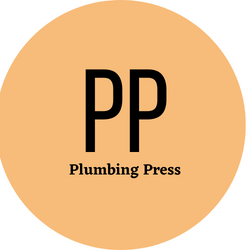What To Do In A Plumbing Emergency: Tips For Homeowners
by siteadmin

Plumbing emergencies can happen at any time, and they often catch homeowners off guard. A burst pipe, a clogged drain or a malfunctioning water heater can cause significant damage to your home and disrupt your daily routine. Knowing what to do in a plumbing emergency can help you prevent costly repairs and minimize the damage. In this blog post, we'll share some tips for homeowners to help them deal with a plumbing emergency quickly and efficiently.
1. Shut off the water supply
The first thing you should do in a plumbing emergency is to turn off the water supply to your home. This will prevent further damage from occurring and give you time to assess the situation. The shut-off valve is typically located near the water meter or where the main water line enters your home. It's a good idea to locate this valve ahead of time and show all family members where it is located.
2. call a plumber
Once you have shut off the water supply, your next step should be to call a plumber. Look for a plumber who specializes in emergency services, and keep their contact information handy. Some plumbers offer 24/7 services, which can be a lifesaver during an emergency. Be sure to communicate the urgency of your situation to the plumber, so they can prioritize your call.
3. Take necessary safety precautions
A plumbing emergency can pose a safety hazard, especially if there is standing water or sewage involved. To avoid electrocution, turn off electrical power to the affected area of your home, if possible. Wear protective gloves and clothing to avoid contact with hazardous materials. If there is a gas leak, turn off the main gas valve to your home and evacuate immediately. Wait until a professional plumber or gas technician has resolved the issue before returning to your home.
4. Try to contain the damage
While it's best to leave plumbing repairs to the experts, there are a few things you can do to contain the damage before the plumber arrives. For example, if there is a burst pipe, place a bucket underneath to catch the water. Use towels or rags to soak up any excess water and prevent it from spreading. If there is a clogged drain, try using a plunger to remove the blockage. Avoid pouring chemicals down the drain, as this can cause further damage.
5. Prevent future emergencies
Prevention is always better than cure. To avoid future plumbing emergencies, take some simple steps to maintain your plumbing system. Have your plumbing system inspected by a professional plumber on a regular basis. Fix minor leaks and drips as soon as you notice them, to prevent them from turning into bigger problems. Avoid flushing anything other than human waste and toilet paper down the toilet. Avoid pouring grease and oil down the sink, as this can cause clogs.
Plumbing emergencies can be stressful and scary, but knowing what to do can make all the difference. In a plumbing emergency, the most important thing is to shut off the water supply and call a plumber. Taking necessary safety precautions and trying to contain the damage can also prevent further problems. By following these tips and taking steps to maintain your plumbing system, you can avoid future emergencies and enjoy the peace of mind that comes with knowing your home is protected.
https://www.commercialplumberscastlerockco.com/
www.commercialplumberscastlerockco.com/
Plumbing emergencies can happen at any time, and they often catch homeowners off guard. A burst pipe, a clogged drain or a malfunctioning water heater can cause significant damage to your home and disrupt your daily routine. Knowing what to do in a plumbing emergency can help you prevent costly repairs and minimize the damage.…
Recent Posts
- Utah Power Plumbers: The Trusted Name in Provo for All Plumbing Needs
- Keeping Your Water Hot: Essential Water Heater Maintenance Tips in Albuquerque
- Expert Heating, Cooling, And Plumbing Services At Hubbard Mechanical
- Scranton Plumbers Expands Horizon: Premier Plumbing Services Now Available in East Stroudsburg and Pittston, PA
- the Ultimate Choice Among Plumbing Contractors in Lorain, Ohio
